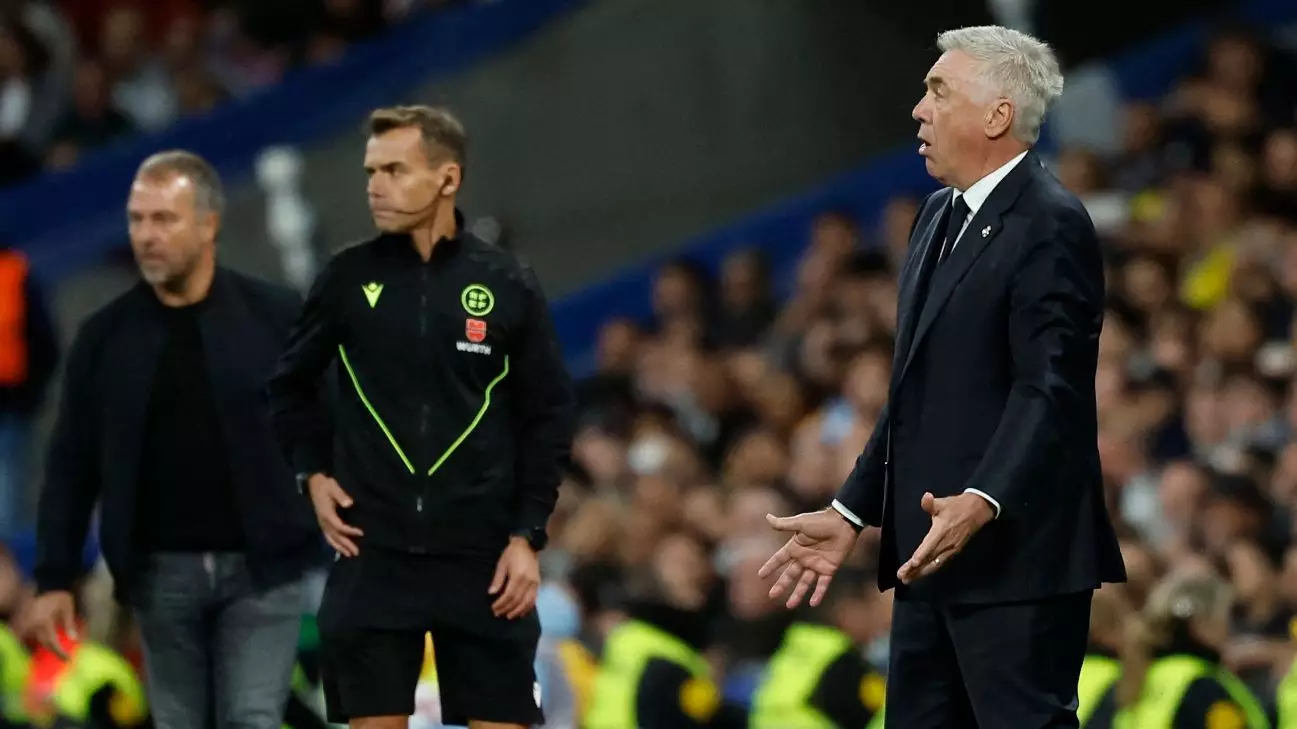In the highly anticipated El Clasico on Saturday, Real Madrid faced a disheartening defeat at the Santiago Bernabéu, succumbing to a 4-0 loss against their arch-rivals Barcelona. This match not only marked the end of Madrid’s commendable 42-game unbeaten streak in La Liga but also offered insight into the contrasting trajectories of both clubs under their respective coaches. As emotions ran high post-match, various reactions emerged, revealing the competitive spirit and deep-seated rivalries inherent in Spanish football.
Real Madrid entered this clash with expectations running high, having historically dominated recent encounters with Barcelona, winning the last four matches across competitions. However, the reality was starkly different this time. The team started strongly but faltered dramatically in the second half, allowing Barcelona to capitalize on their lapses. Robert Lewandowski, the standout performer of the match, scored two goals in quick succession, showcasing his exceptional finishing skills. He was complemented by contributions from Lamine Yamal, the youngest scorer in Clasico history, and Raphinha, who sealed the game with a goal that left the Madrid bench in disbelief.
Despite the dour final score, Carlo Ancelotti’s remarks after the match provided a nuanced picture. He suggested that the first half was competitive, emphasizing that missed chances were pivotal, stating, “We had opportunities but weren’t clinical. When they score, it saps some energy from you.” Such remarks highlighted that while tactical errors were made, the psychological impact of conceding goals can often be just as debilitating as any miscalculation on the pitch.
Bitter Reactions and Controversial Celebrations
Ancelotti’s grievances, however, extended beyond the scoreboard. His pointed critique of Barcelona’s bench celebrations, particularly aimed at Hansi Flick’s assistant, reveals the tensions that characterize such a rivalry. Ancelotti expressed dissatisfaction with the unrestrained manner in which Barcelona celebrated their fourth goal, claiming it was unbecoming conduct from the opposing sideline. Flick, navigating the post-match interview with diplomatic finesse, opted to downplay the incident, indicating that emotions run high in such significant matches and that both coaches could settle the matter internally.
This exchange sheds light on the psychological battles that often accompany these matches. Coaches like Ancelotti and Flick are not merely managing player tactics but also influencing the morale and emotional responses of their teams. The context of their discussions can impact their future encounters, especially during a season filled with high-stakes games.
Kylian Mbappé, one of the game’s brightest stars, had a night to forget. His performance was marred by two goals ruled offside and a flurry of futile attempts that failed to breach Barcelona’s backline. With eight offside calls, equating to a record in recent La Liga history, Madrid’s attacking strategies appeared ineffectual. Ancelotti remarked on the risks involved in using Mbappé against Barcelona’s high defensive line, stressing that precision was crucial in capitalizing on their defensive structure—something his team ultimately failed to do.
Despite the scoreboard’s bleak portrayal, Ancelotti asserted that the team would regroup and learn from this loss, much like they did after their previous defeat. This sentiment of resilience echoes throughout the club, with an understanding that each match represents an opportunity for growth and improvement, even in the face of an overwhelming defeat.
On the other side of the equation, Barcelona’s triumph painted a vivid picture of the club’s recent resurgence under Flick’s leadership. Following a scintillating victory over Bayern Munich just four days prior, this Clasico win was a statement of intent. Flick’s focus on continual improvement resonated as he praised his players for their formidable performance, asserting, “We keep going with our idea… today was not easy, but we made a fantastic match.”
Barcelona’s resurgence is a testament to their commitment to training and strategic evolution. Their ability to maintain composure under pressure highlights their development into a cohesive unit capable of competing at the highest levels. The celebrations in the dressing room, deemed by Flick as a moment of joy for the players, signify a collective belief that they are on the right path.
Saturday’s Clasico encapsulated the fervor and emotional stakes inherent in Spanish football. Real Madrid’s loss serves as a catalyst for a potential reassessment of tactics and mental resilience, while Barcelona’s victory is a clarion call of their resurgence in form. With the season still in its early stages, both teams have critical lessons to absorb as they navigate the trials ahead, ensuring that this rivalry remains as compelling as ever.

Leave a Reply